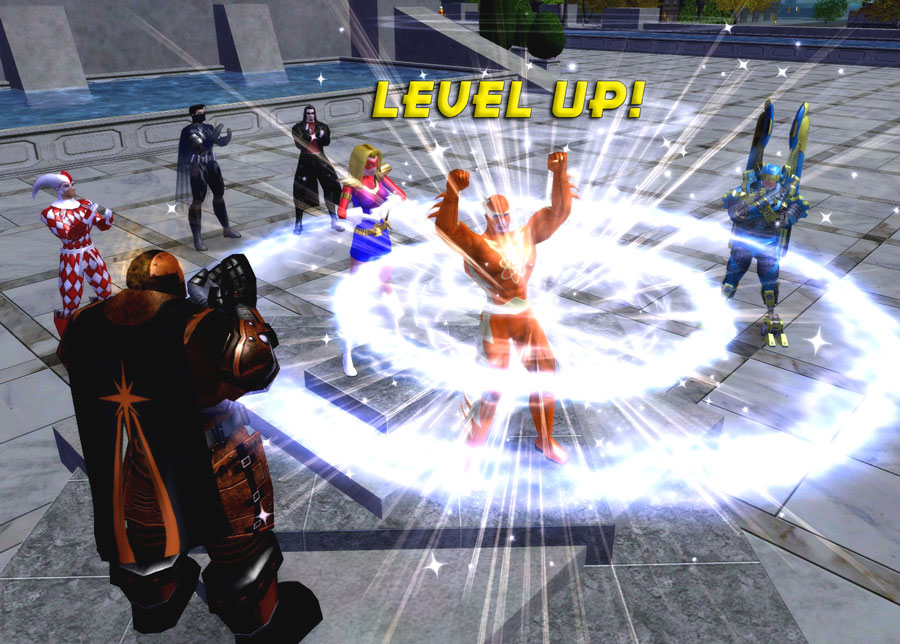Uncategorized
How to Level Up in Five Steps or Less
Discuss this post in RPG FitGroup!

Content Warning: Discussion of weight loss.
We discuss on Monday how losing weight is more than just a side quest – today we’re going to go into detail about how to level up any area of your life. To do that, we’re going to talk about the five stages of change, also known as the transtheoretical model of behavior change. The transtheoretical model was developed by James Prochaska of the University of Rhode island, and it describes a road map by which any individual can make a positive change in their life (sometimes without even realizing it!)
By understanding this process, we can better engineer and plan the positive changes we want to see in our lives, and execute those plans with greater success! Since we were already talking about weight loss on Monday, I’m going to continue to refer to that as an example here, however you can use this method with any positive change or habit you’d like to establish in your life.
Pre-Contemplation
In the pro-contemplative stage, you’re not intending to change your life, and you’re probably not even thinking about making any specific positive change. You may be vaguely aware that a change should be made, but it’s such an insignificant thought that you don’t even dwell on it. In the weight loss example, this is where you might be feeling a little overweight, and you might have some idea of the benefits you might see from losing weight. However, you have no actually desire to lose weight right now, and no intention of doing so any time soon.
Contemplation
In the contemplation stage, you’ve accepted the notion that you’re going to start to make a positive change in your life sometime soon. The cause could be just a general acquisition of knowledge of the pros of this change (I’ll be at much lower risk of heart disease if I lose some weight,) or there could also be a catalyzing event (oh wow, my overweight dad just had a heart attack and my doctor said I’m at risk if I don’t lose weight myself!)
Now, sometime soon could still be a ways off. Some people hang out in the contemplation stage for several months!
Preparation
In the preparation stage, you are on the verge of making the positive change you want to see in your life. The change is imminent, but you haven’t quite started yet. In the case of weight loss, this may be gathering healthy food recipes and using them to lay out a meal plan for your week, or looking into local gym membership fees and setting aside some money in your budget for it.
This can be the most important stage in the five stages of change when it comes to insuring your success. Research shows that those who prepare the most thoroughly have the greatest chance of success.
Action
This is it! You’ve made the leap! This is where you begin to follow your new food plan, start your new exercise regimen, and begin to log your meals in your calorie counter app! The action stage typically refers to the first six months of a new habit or routine in your life. The action stage is where you learn techniques to keep up your new habit, and develop coping mechanisms. For weight loss, this could include positive support from friends, finding workout buddies, planning your meals out for the week in advance (and shopping accordingly,) or getting rid of obvious pitfalls (maybe cut back on trips to the mall if you always binge on food court pizza while you’re there.)
The action stage is tricky, because it’s easy to get fired up about your new lifestyle, which is great, but it’s also the stage at which it’s easiest to relapse (which we’ll talk about in a minute.)
Maintenance
Maintenance refers to the stage after the first six months of a new habit or behavior pattern in your life. At this point, you’ve made your new lifestyle a solid habit. You still need to be mindful about situations that may cause you to fall back into your old habits (looking at you, late night trip to Taco Bell,) but on the whole, your newer, healthier living situation is well established. You’ve officially incorporated it into your main quest line, and leveled up! Well done!
Relapse
So, let’s talk to a minute about relapse. First off, relapse is, as we mentioned, most common in the action stage – where you’re developing coping mechanisms, and trying to establish your new habit. It’s important to remember that relapsing happens. It’s okay, seriously! Too many people have a tendency to throw their hands up and quit the first time they have a night of binge-watching Netflix and eating a whole tub of ice cream (yes, I’ve done it…More then once.) Blowing up the whole boat just because you fell off once isn’t going to help anyone.
The fact is, you’re going to slip once in a while. That’s okay, as long as you get right back on the boat the next day! Here’s the deal: the people who succeed, really succeed at engineering a new lifestyle for themselves are not the ones who never slip up, or never have a cheat day. They’re the ones who slip up, but then don’t give up afterwards.
Your best bet for avoiding relapses, and helping yourself succeed, are to surround yourself with support. Find like-minded people who are working towards the same goal as you, want to see you succeed, and are living the kind of lifestyle you’d like to live, too! Supportive family and friends can mean everything when it comes to success, and you deserve to succeed.
That, my friends, is how you level yourself up.
Live boldly, change the world, and continue to be awesome!
Dan




